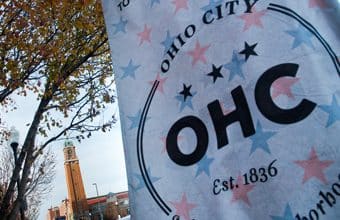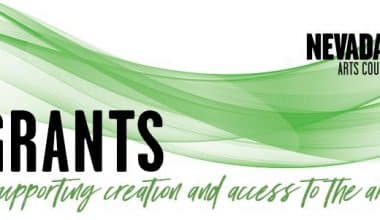The United States government provides grants and loans to small businesses through a variety of departments and agencies. Grants.gov is a single portal where you can learn about many of them, search for ones you might be eligible for, and apply for them. Here, we’ll look at some of the major federal grants available for small businesses.
Federal Grants Available For Small Businesses
#1. U.S. Small Business Administration (SBA).
The SBA maintains a limited grants program in addition to its lending program, through which it backs loans to small firms made by private lenders. While it states that it “does not provide grants for starting and expanding a business,” its Small Business Innovation Research (SBIR) and Small Business Technology Transfer (STTR) programs “encourage small firms to undertake scientific research that helps meet federal research and development objectives and has a high potential for commercialization if successful.”
Furthermore, the SBA funds the State Trade Expansion Program (STEP). STEP funds states and U.S. territories, allowing them to provide grants and other financial support to small enterprises wishing to export globally.
#2. U.S. Department of Health and Human Services (HHS).
The Office of Small and Disadvantaged Business Utilization (OSDBU) of the Department of Health and Human Services awards grants to small firms that meet certain criteria. Its programs are designed to assist small businesses in competing for federal contracts, with a focus on socially or economically disadvantaged people (the 8(a) Business Development Program), historically underutilized business (HUB) zones (HUBZone Program), and women-owned businesses (the Women-Owned Small Businesses (WOSB) and Economically Disadvantaged Women-Owned Small Businesses (EDWOSB) programs, among others. HHS claims that it “distributes the most grant funding of any federal agency, including small business programs.”
#3. United States Department of Agriculture (USDA)
Directly or indirectly, the USDA finances a wide range of financial aid programs for farmers, ranchers, and other agricultural producers. The USDA Rural Development Business Program, for example, collaborates with financial institutions and community-based organizations to provide grants, loans, and loan guarantees to individuals and businesses in rural regions.
#4. Small Business Innovation Research (SBIR) and Small Business Technology Transfer (STTR) programs
The SBIR and STTR programs are among the top federal subsidies available to for-profit small firms focusing in science and technology innovation. They are extremely competitive and encourage small enterprises to perform research and development with the aim of someday commercializing their product. In addition to money, these programs provide chances for small enterprises to collaborate with charitable groups.
To be eligible for the SBIR and STTR programs, you must run a US-based small firm that is more than 50% owned by US citizens and employs fewer than 500 people.
These programs are divided into three phases:
- Phase I: The award is between $50,000 and $250,000 for six months (SBIR) or one year (STTR). The goal is to determine technical value, commercial potential, and viability.
- Phase II: The award is typically $750,000 for two years (SBIR and STTR). The goal is to continue research and development efforts from Phase I.
- Phase III: SBIR and STTR programs do not give funding. The goal is to pursue commercialization.
#5. Environmental Protection Agency (EPA) grants
The EPA assists many businesses, ranging from small non-profits to huge state governments, by providing billions of dollars in grants and other assistance agreements. Its primary goal is to contribute in the advancement of human health and the environment. The EPA home website provides useful information such as available training and funding opportunities, application processes, and rules and policies.
#6. USDA Rural Business Development Grants
If you are a small firm (fewer than 50 employees and less than $1 million in gross revenue) operating in a rural location (population under 50,000), you may be a great candidate for funding from a USDA Rural firm Development grant.
This grant is awarded to public entities such as towns, communities, state agencies, and nonprofits to benefit small and emerging businesses in rural communities in industries such as land acquisition or development, pollution control and abatement, rural transportation improvement, and economic development.
The USDA also provides various rural subsidies, loans, and loan guarantees. You can refine your search by state. For additional information, go visit the Rural Business Development Grants page.
#7. U.S. Department of Education grants
Small firms in the education industry can apply for funds from the United States Department of Education. It offers dozens of grants for specialized purposes like as scientific research, state education, and special education. Each grant includes program information such as who is eligible to apply, total program funding, award ceilings, and the number of awards.
#8. Service-Disabled Veteran-Owned Small Business (SDVO SBC) program
Through the Service-Disabled Veteran-Owned Small Business Program, the SBA provides federal funding to service-disabled veteran small business owners.
To be eligible for the program, you must meet specific ownership and operational conditions. For example, your small firm must be at least 51 percent owned and controlled by service-disabled veterans, and you must have one or more service-disabled veterans making day-to-day and long-term decisions. As a participant in the SDVO SBC Program, you will be eligible to compete for set-aside contracts.
How Do You Know Your Business Qualifies For A Federal Grant?
Applying for a business grant is a time-consuming and difficult procedure, so make sure you only apply for the ones you’re eligible for. To reduce your search to a few projects, thoroughly review the information and dates of each grant you consider. If you fit the general business criteria, go a step further and make sure your aims align with the government grantor’s goals.
How to Apply for Federal Small Business Grants
The first rule of applying for a small business grant is to double-check any deadlines. Some schools accept applications all year, while others have annual or quarterly deadlines.
While you should not rush through your applications, it is in your best interests to submit them as soon as feasible. Most grant programs have limited finances and may cease even examining applications if the funds are depleted.
Grant writing, or applying for grants, is a craft in its own right and a full-time job for some people. If you’re starting from scratch, there’s a wealth of how-to knowledge available in books and online. Grants.gov, for example, includes a blog dedicated to useful grant-writing advice.
Among them: attempt to put yourself in the shoes of someone examining your application and hire some qualified proofreaders early in the process not only to find typos but also to point out any difficulties of logic or structure that may be interfering with your message.
Tips For Getting A Federal Small Business Grant
Applying for a government grant is one thing, but how do you get the grant? Here are some tips:
#1. Create a professional resume
You may benefit from hiring an expert to make your resume stand out and appear more professional. This improved CV should include responses to any questions the funding organization may have when they review your application. It should also clearly describe how long you’ve been in business, how much your business earns monthly, and how you want to use the funding. A business strategy and a professional photo are also required.
#2. Consider collaborating with a significant local organization.
“Begin by researching large corporations or brands headquartered in your area that have a corporate social responsibility strategy,” suggested Ty Stewart, CEO of Simple Life Insure. “Businesses frequently support grant programs and partnerships to help develop the communities where they are located, particularly around regional or global headquarters.” They have a vested interest in keeping those neighborhoods thriving, including assisting related small businesses.”
#3. Contact your municipal or county’s economic development council
Your community may have an economic development council. “This branch of government often aggregates a continual list of grant opportunities,” Stewart went on to say. “Having a working relationship with economic development council staff or members can help you stay in the loop on these grants as well as elevate your business’ visibility in your community, which will help come application time.”
#4. Use your digital assets
Make sure your digital assets, including social media profiles, are as powerful as feasible. “Businesses should also focus on digital assets like social media handles and websites, along with other physical assets,” Ward pointed out. “The digital assets act as the face of the company and should give a good first impression when people search for it.”
#5. Consider strategies to differentiate yourself from the competitors
“It is important for small businesses to stand out from the rest of the other grant applications,” Ward said. “To impress the people in charge, business owners should think creatively and implement out-of-the-box ideas.” Something as basic as a lighthearted video outlining why your business strategy is worth investing [in] will do the trick.”
Who Is Eligible for US Business Grants?
To be eligible for U.S. business grants, a business must already be in operation and have taxes in good standing with no outstanding tax amounts or liens; an owner who is the majority owner as well as the decision-maker; a business owner who earns their primary income from this business; and an owner who can prove their eligibility by providing government-issued identification.
What is the Easiest SBA Loan to Get Approved for?
SBA Express. It has the simplest SBA application process and the quickest approval periods, as well as longer terms and lower down payment requirements than conventional loans.
What Disqualifies You From Getting an SBA Loan?
Poor credit, too much previous debt, or insufficient collateral are the most common reasons SBA loans are refused. Other considerations include a previous bankruptcy. Income that is not taxable.
What is the Minimum Credit Score for SBA Loan?
While there is no official needed SBA loan credit score from the Small company Administration, lenders will frequently set minimum personal and company credit score requirements for SBA loan applicants. A SBSS of 140 to 160+ or a personal score of 620 to 640+ is generally required to qualify.
Does The Government Give Money To Startups?
Small-business awards are provided by federal and state authorities, as well as private firms. Here is a list of resources. Find startup grants.Startup business grants can assist tiny businesses or actual startups develop without incurring debt.
Is There A Way To Start A Business With No Money?
There are several offline enterprises that do not require any initial capital. For example, you may establish a dog-walking or pet-sitting business, work as a tutor for local youngsters, or teach art or music. These businesses allow you to use your skills to create money without spending any money.
Is the SBA Grant Real?
The SBA does not offer grants for beginning or developing a business. The SBA awards funds to charitable, Resource Partners, and educational institutions that promote entrepreneurship through counseling and training programs.
What is the Difference Between SBA Loan and SBA Grant?
The main distinction between a loan and a grant is that a loan must be returned, but a grant does not. If you are unable to repay the funding, a grant may be a better choice. Although this is the fundamental contrast between the two sources of funding, there are other distinctions that small business owners should be aware of.
In Conclusion,
Government grants, in contrast to small company loans, are free money from federal, state, and local entities. This quickly gives your funding a reputable name, albeit it also, as is normal for government operations, adds a lot of paperwork. With the assistance of grant application pros on your side, this paperwork can feel more like a hill than a mountain. On the other hand, you might just find the capital your company needs.
- SBA LOAN PROCESS: What It Is and How It Works
- SMALL BUSINESS LOAN: How to Get a Small Business Loan
- Grant Management Software: Top 10 Options For Nonprofits
- Where to Get Free Money to Start a Small Business






